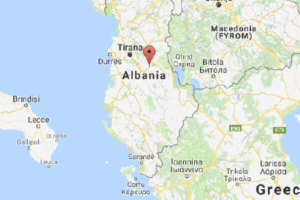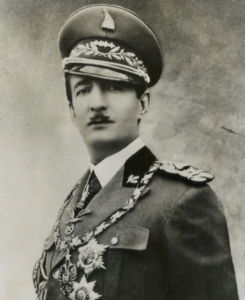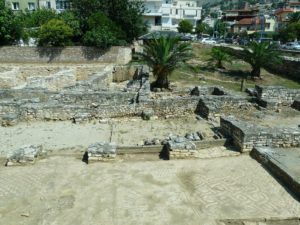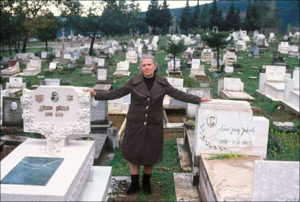 Jewish settlements were founded at the beginning of the 16th century in the Albanian seaports by exiles from Spain, who were joined by refugees from other areas. There were sizable trading communities at Berat, Durazzo, Elbassan, and Valona: here there were Castilian, Catalonian, Sicilian, Portuguese, and Apulian synagogues.
Jewish settlements were founded at the beginning of the 16th century in the Albanian seaports by exiles from Spain, who were joined by refugees from other areas. There were sizable trading communities at Berat, Durazzo, Elbassan, and Valona: here there were Castilian, Catalonian, Sicilian, Portuguese, and Apulian synagogues.
Albania was ruled by the Ottoman empire from 1478 to 1913. After 1850, Jews again came from Greece, establishing a community at Vlorë. After World War I there were only about 200 Jews in the entire country, mostly in Koritsa (Korçë).
 By the outbreak of World War II, between six hundred and 1,800 refugees had arrived in Albania, from Germany, Austria, Serbia, Greece, and Yugoslavia. King Zog encouraged Jews to immigrate to Albania, despite the Jewish mark in their passports and even encouraged those without passports. Due to Albania’s liberal visa application process, Jews began coming from all over Europe.
By the outbreak of World War II, between six hundred and 1,800 refugees had arrived in Albania, from Germany, Austria, Serbia, Greece, and Yugoslavia. King Zog encouraged Jews to immigrate to Albania, despite the Jewish mark in their passports and even encouraged those without passports. Due to Albania’s liberal visa application process, Jews began coming from all over Europe.
The Italians invaded in 1939. To encourage Albanians to co-operate with the Italian invasion forces, from April 1941 to November 1944, most of the Albanian-inhabited areas that had been previously taken away from Albania and given to the Kingdom of Yugoslavia joined Albania. This included most of Kosovo, parts of Serbian Sandzak, parts of Montenegro, and parts of Macedonia, from Struga on Lake Ohrid to Tetovo. The local Albanian government used its authority under a deal with the Italians to refuse to hand over lists of Jews to the German forces.
 The Albanians went to great lengths and took personal risks to shield the Jews from the Nazis. Non-Jewish Albanians would steal identity cards from police stations for Jews to use. The Albanian underground threatened to execute anyone who turned a Jew in to the Nazis. At first, individual Albanians saved Jews on their own initiative. Later, the task was organized by National Liberation Councils in the towns and villages. Often Jews were disguised as Albanian peasants and covertly relocated. Albania was the one occupied countrythat evaded the Nazi persecution of Jew and had the unique survival rate of 100%. It was the only country to have a larger Jewish population after the second world war than before.
The Albanians went to great lengths and took personal risks to shield the Jews from the Nazis. Non-Jewish Albanians would steal identity cards from police stations for Jews to use. The Albanian underground threatened to execute anyone who turned a Jew in to the Nazis. At first, individual Albanians saved Jews on their own initiative. Later, the task was organized by National Liberation Councils in the towns and villages. Often Jews were disguised as Albanian peasants and covertly relocated. Albania was the one occupied countrythat evaded the Nazi persecution of Jew and had the unique survival rate of 100%. It was the only country to have a larger Jewish population after the second world war than before.

After the war and until the collapse of Communism in 1990, the community was completely cut off from the Jewish world. All religion was strictly outlawed, and consequently there was no Jewish communal life. In 1991 nearly the entire Jewish community, numbering some 300 people, was airlifted to Israel.
With the departure of almost the entire Jewish community, there is virtually no organized Jewish life in Albania today. Most of the few remaining Jews live in the capital, Tirana. A synagogue still exists in Vlorë, but is no longer in use.